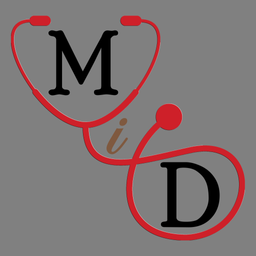No one's actually practicing medicine at Snow Family Medicine
💬 comments
Admittedly, "Snow Family Nurse Practitioner" or "Snow Family Midlevel" just doesn't have the same ring to it.
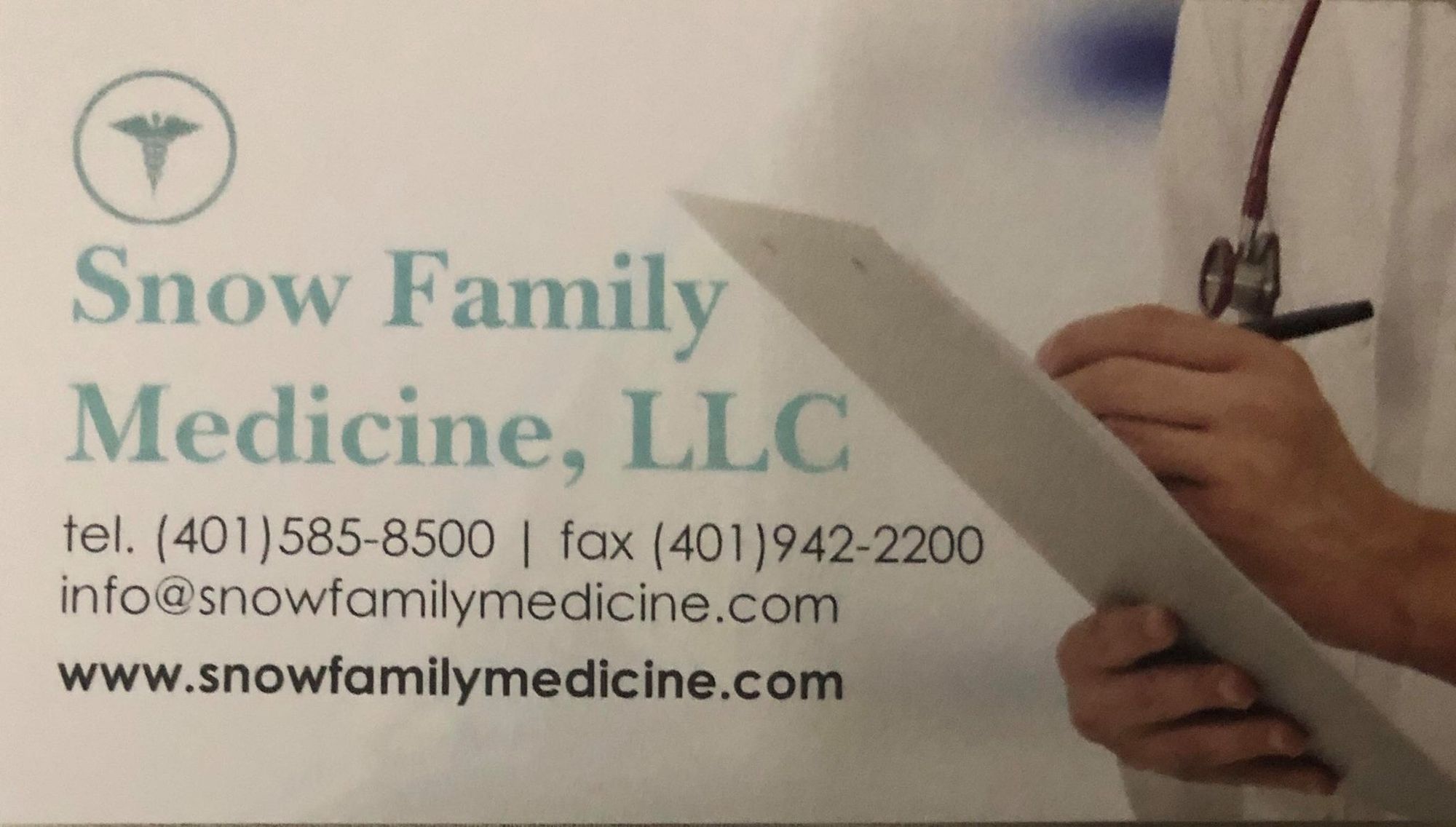
Under Rhode Island state law (and the corresponding statutes in most, if not all other states), the practice of medicine is restricted exclusively to those individuals with a degree in allopathic medicine (MD) or osteopathic medicine (DO) who also hold an active medical license granted by the State. In fact, RI Gen L § 5-37-12 specifically states that "any person who is not lawfully authorized to practice medicine", including "any [other] title or designation implying a practitioner of medicine", is subject to a maximum of three years imprisonment and/or a $1,000 fine. But then again, three years in the slammer is still shorter and easier than at least seven years spent in medical school followed by an ACGME-accredited family medicine residency, eh?
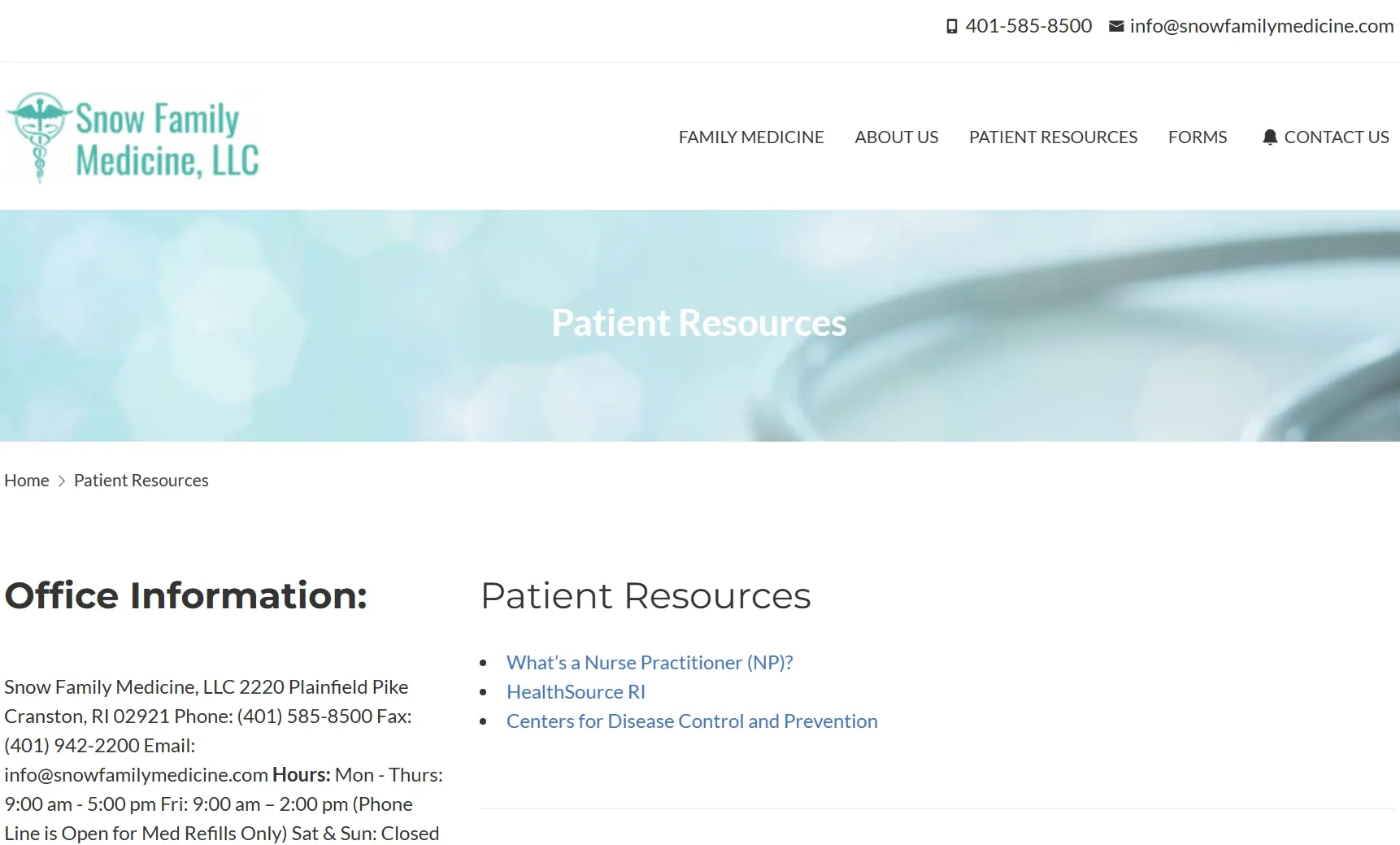
We surmise that's more or less the line of thinking employed by nurse practitioner Kristen Snow (NPI #1568827517) and her gang of fellow midlevel NPs who own and operate Snow Family Medicine (NPI #1104396324) in Cranston, RI. We actually counted: the phrase "Family Medicine" is repeated at least seven times on the practice's homepage, while there is only a single usage of the term "Nurse Practitioner" in a link to an AANP propaganda page.
In addition to the legal considerations outlined above with regard to the unauthorized practice of medicine, claiming to offer "family medicine" without the presence of an actual physician residency-trained in family medicine likely falls afoul of other laws that aim to address deceptive trade practices and false advertising. As in the practice of law, correct nomenclature in the practice of medicine is important. Words matter. Along the same vein, nurse practitioners do not practice medicine - they practice "advanced nursing" within a specific population focus.
What is the difference, and why is the distinction important? Orla Weinhold, MD, a physician who was a family nurse practitioner for eight years before attending medical school characterizes the differences. "Nurse practitioners are taught pattern-based thinking, and physicians are taught more critical thinking." Another physician who was a nurse practitioner first, Dara Grieger, MD, agrees. "As a nurse practitioner, I was taught to recognize the patterns but not the 'why' behind them." What Weinhold and Grieger describe as the difference in the way that nurses and doctors think is the difference between forward reasoning and backward reasoning.

Given the average IQ of the run-of-the-diploma-mill nurse practitioner these days, we'd be inclined to give Ms. Snow and her accomplices the benefit of the doubt when it comes to the use of proper terminology, but the additional evidence below leaves little doubt that the decision to name the business "Snow Family Medicine" instead of "Snow Family Nurse Practitioners" or "Snow Family Midlevels" was no mere accident.
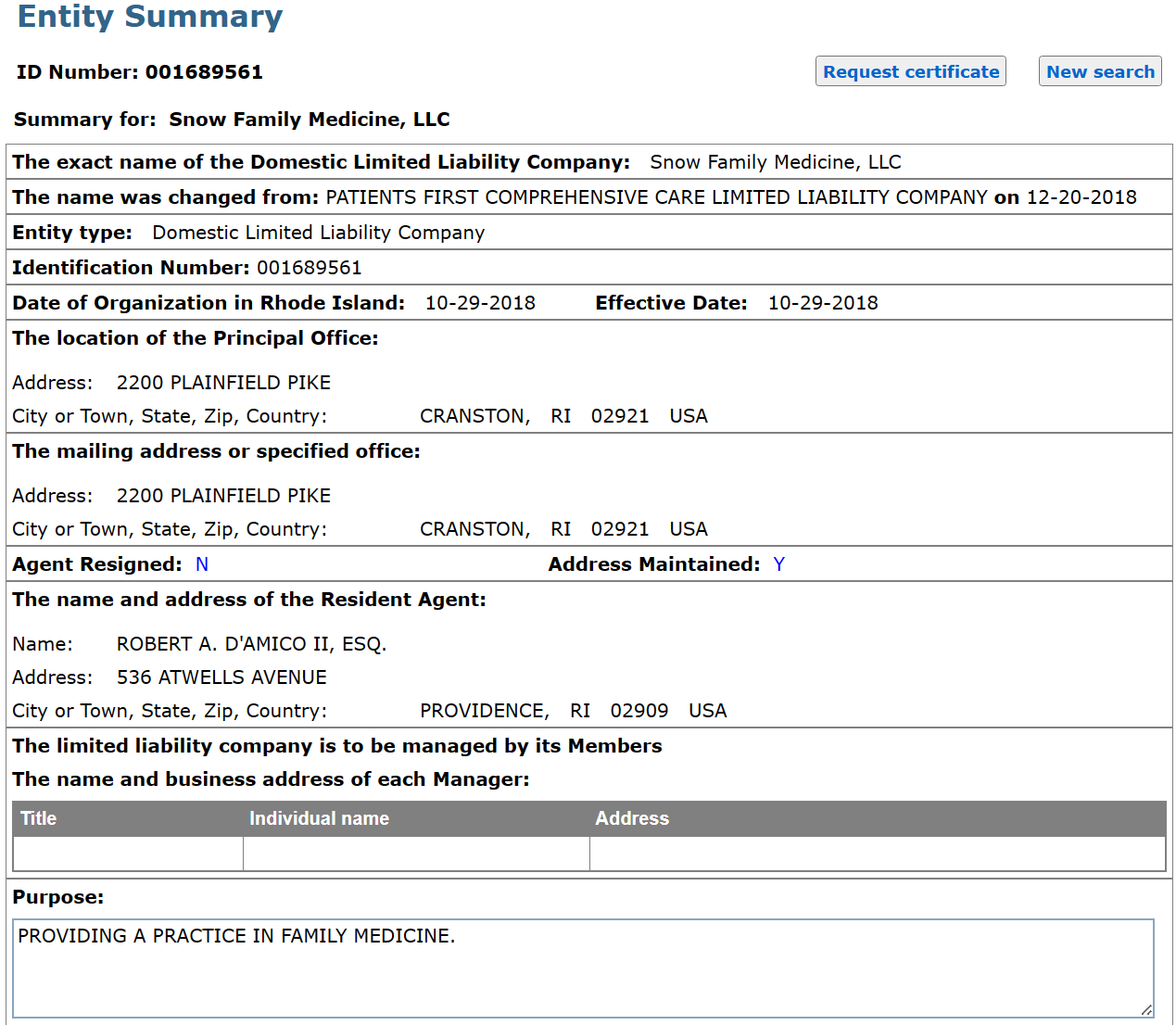
The business filing for Snow Family Medicine, LLC with the Rhode Island Department of State lists its purpose as "providing a practice in family medicine". How's this for a thought exercise: how much legal hot water can an NP find herself in if she creates a business called "Snow Family Medicine" and tells the state government that the purpose of said business is to "provide a practice in family medicine", but there's not a single FM physician to be found?
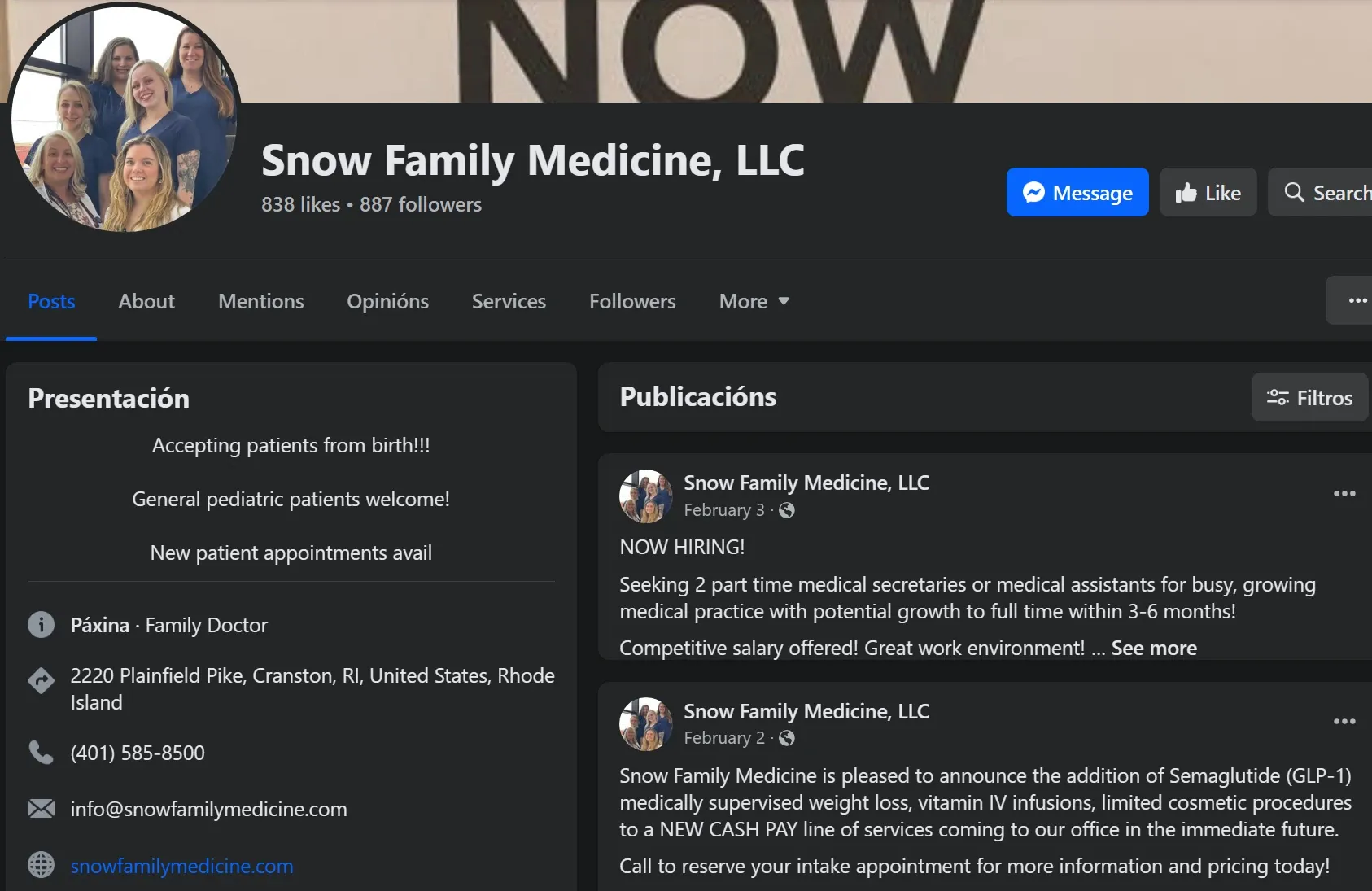
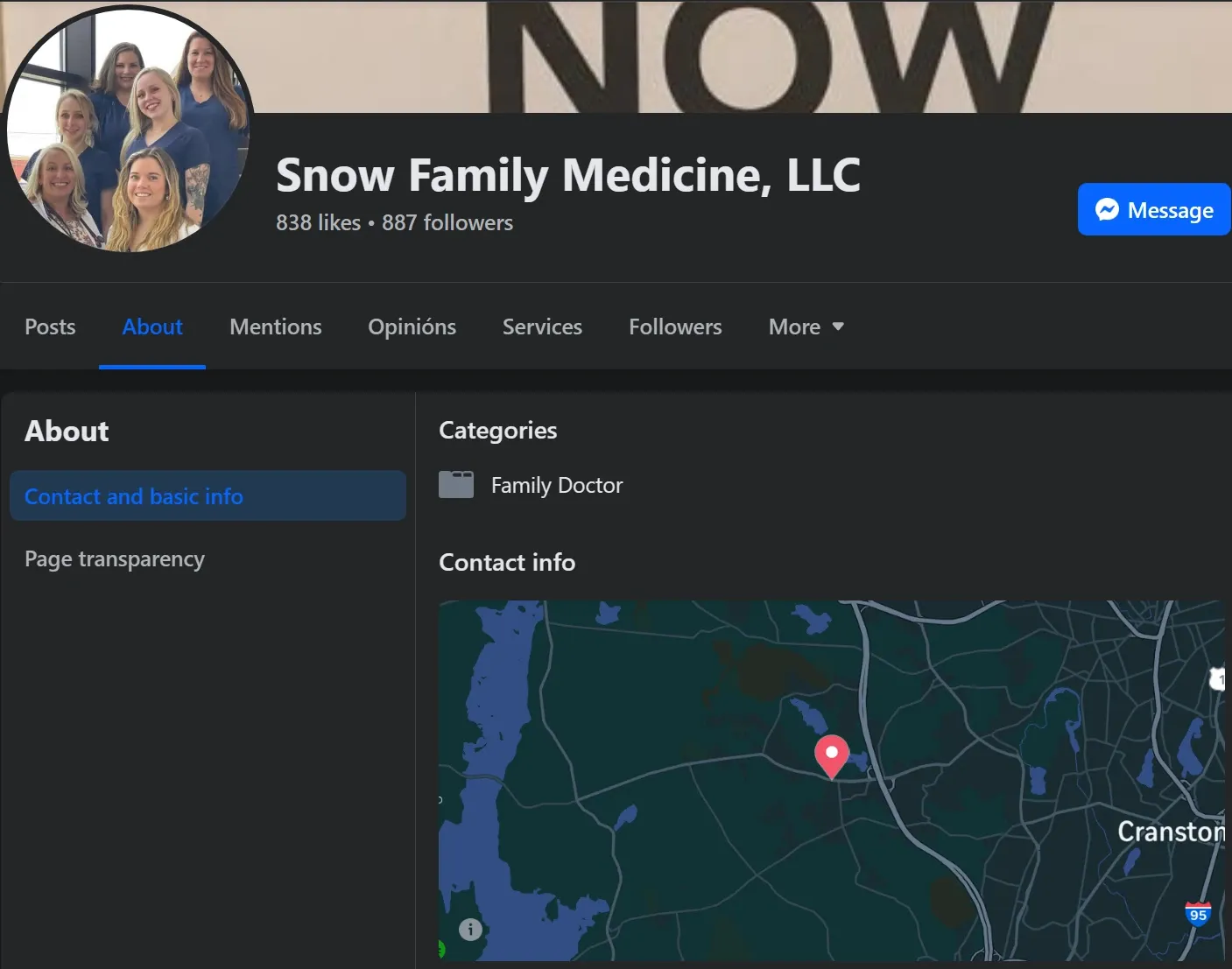
And Snow Family Medicine, LLC is listed as a "Family Doctor" on Facebook.
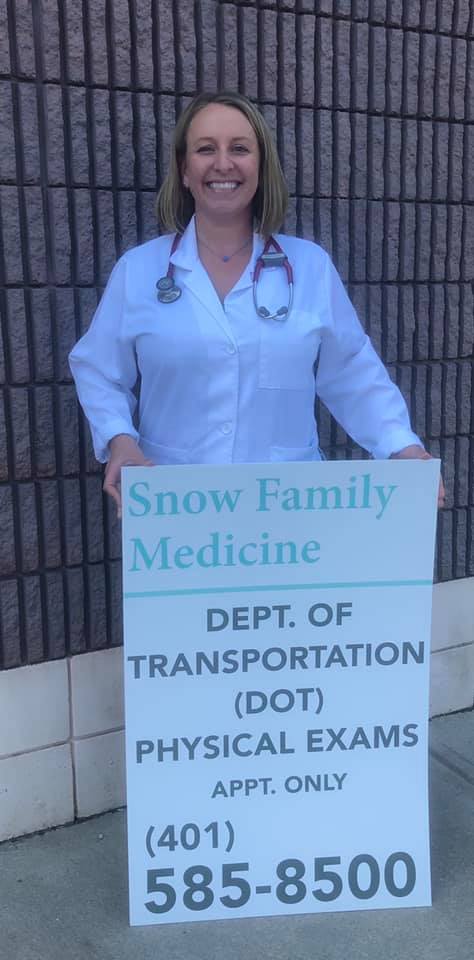
And here is a glamor shot of who appears to be Ms. Snow, holding a sign that reads "Snow Family Medicine" while wearing a white coat that contains neither a name nor credentials. A random outside observer could very easily be misled into thinking that the person holding this sign is a family medicine physician.
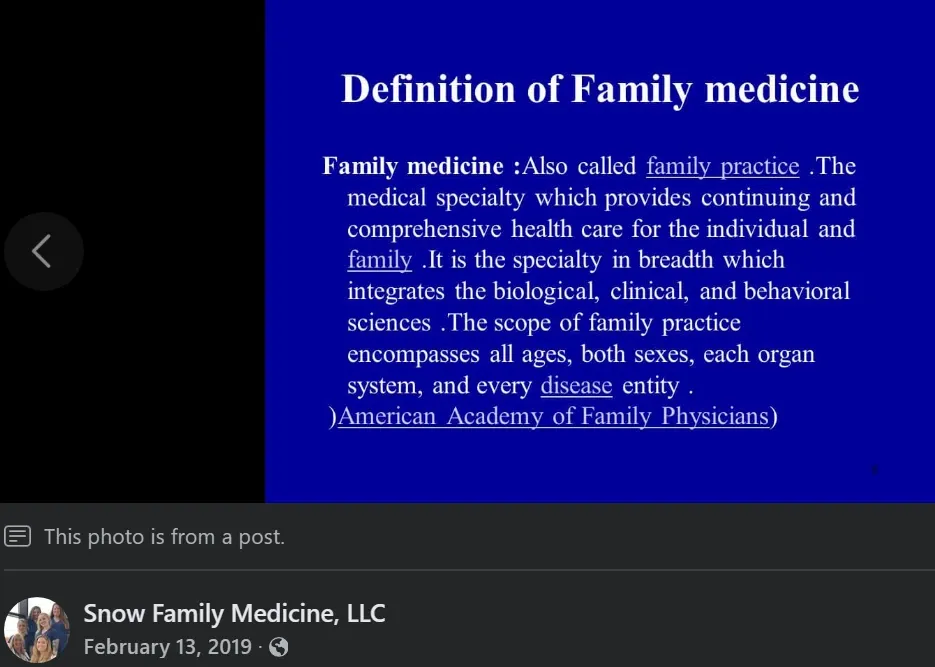
As a non-physician / nurse practitioner, Ms. Snow also has no qualms about co-opting the American Academy of Family Physicians' definition of what family medicine is.
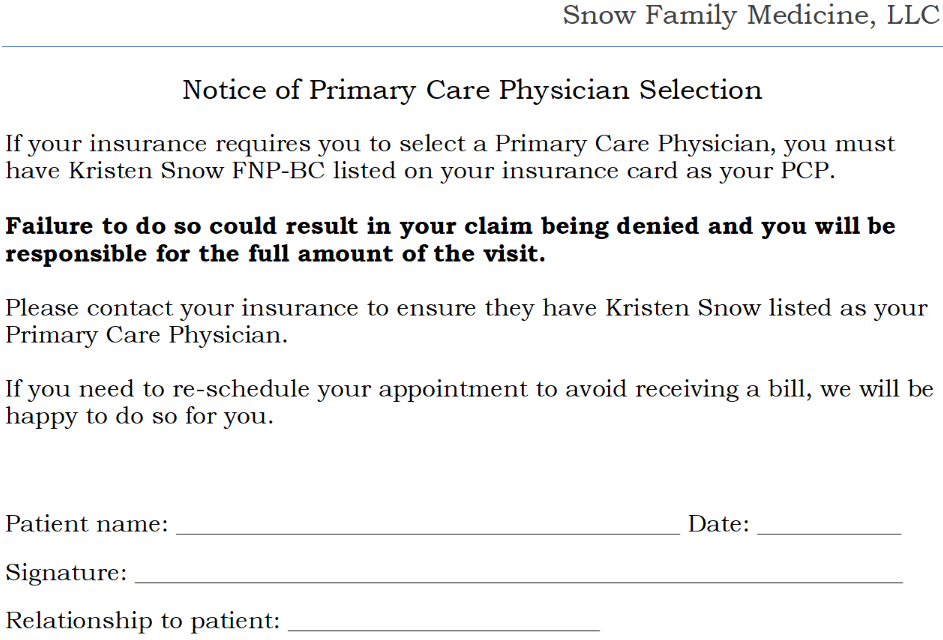
Ms. Snow's new patient intake form is also highly questionable in that it instructs patients to designate her as their primary care physician for insurance purposes. Needless to say, Ms. Snow is not a physician, and instructing patients to do such a thing could be construed as fraud.
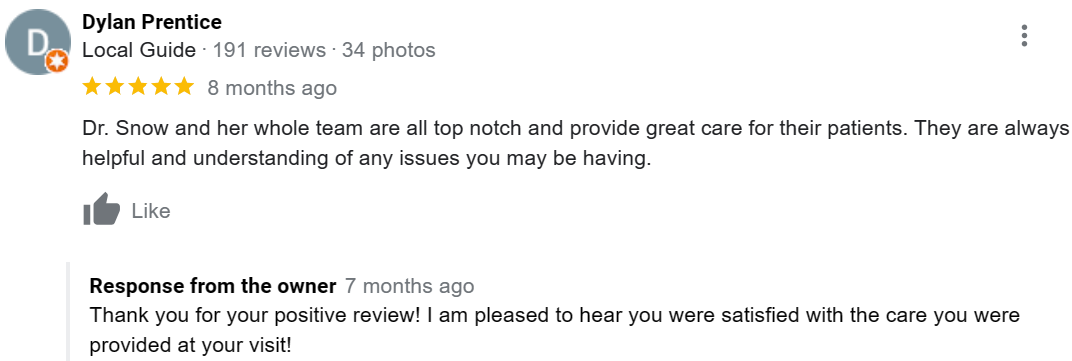
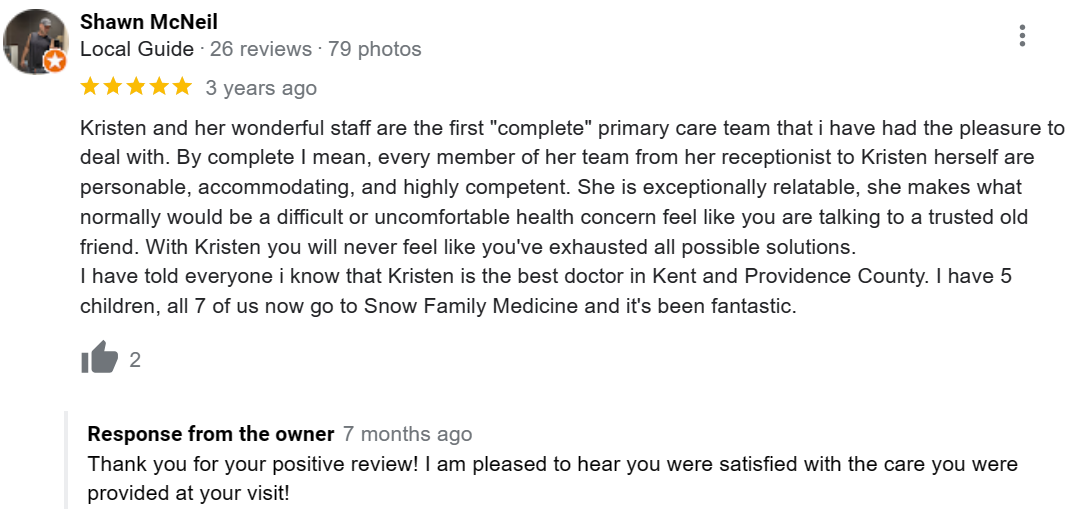

Indeed, it would appear from these Google reviews that NP Snow has done a remarkably effective job of marketing herself to the unsuspecting citizenry of Cranston, RI as a primary care "doctor" who practices "family medicine" instead of the family nurse practitioner she actually is. According to a 2013 survey by the American Academy of Family Physicians, 72% of American adults prefer physicians to nonphysicians when it comes to health care, and by a greater than two-to-one margin, adults see physicians and family physicians as more knowledgeable, experienced, trusted and up-to-date on medical advances than nonphysicians.


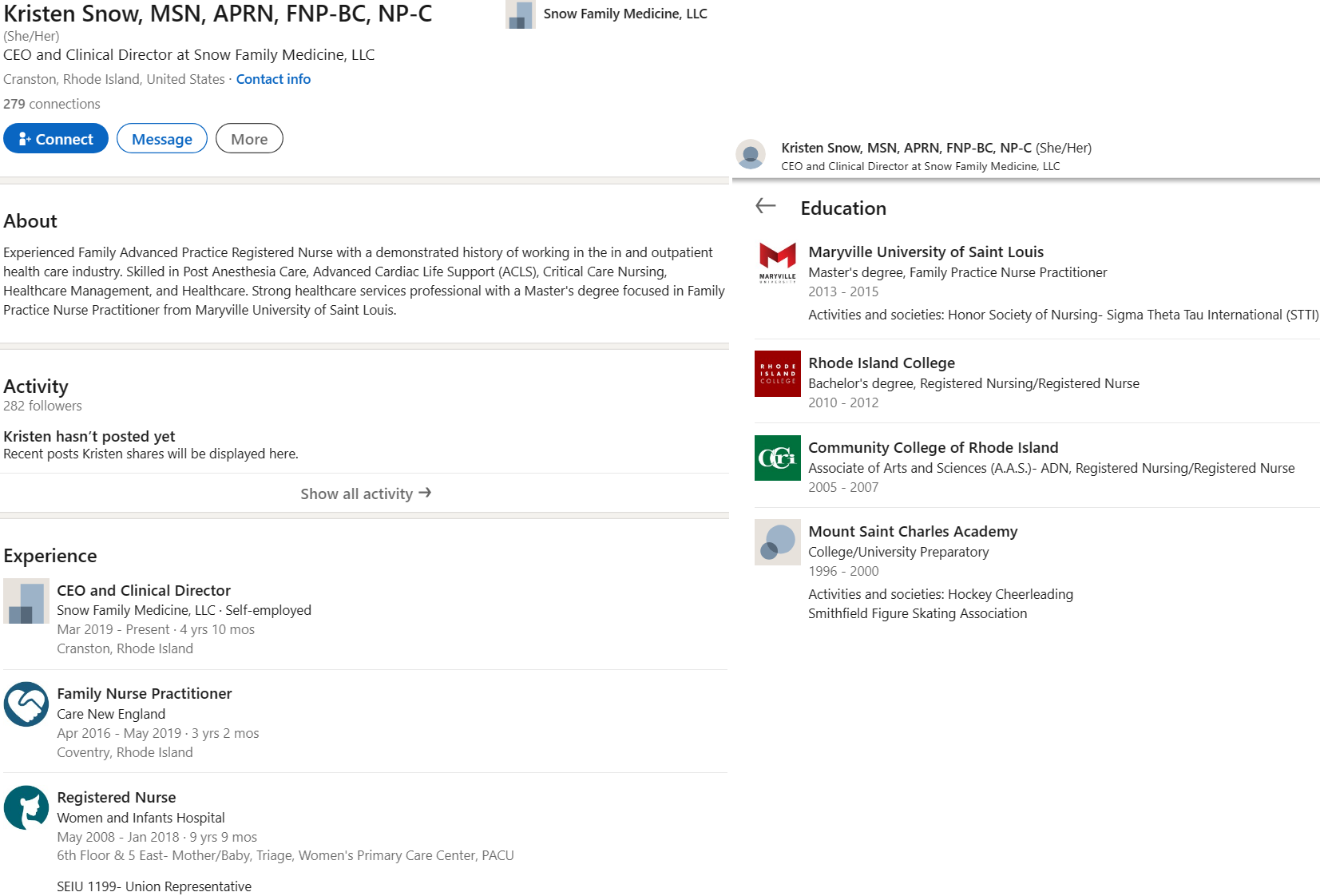
This is all the more ironic, given that Ms. Snow doesn't even have the quintessential Doctorate of Nursing Practice - the all-holy DNP. Instead, Ms. Snow's family nurse practitioner degree comes from Maryville University, a world-renowned diploma mill elite research university that pioneered the concept of 100% online nurse practitioner programs.
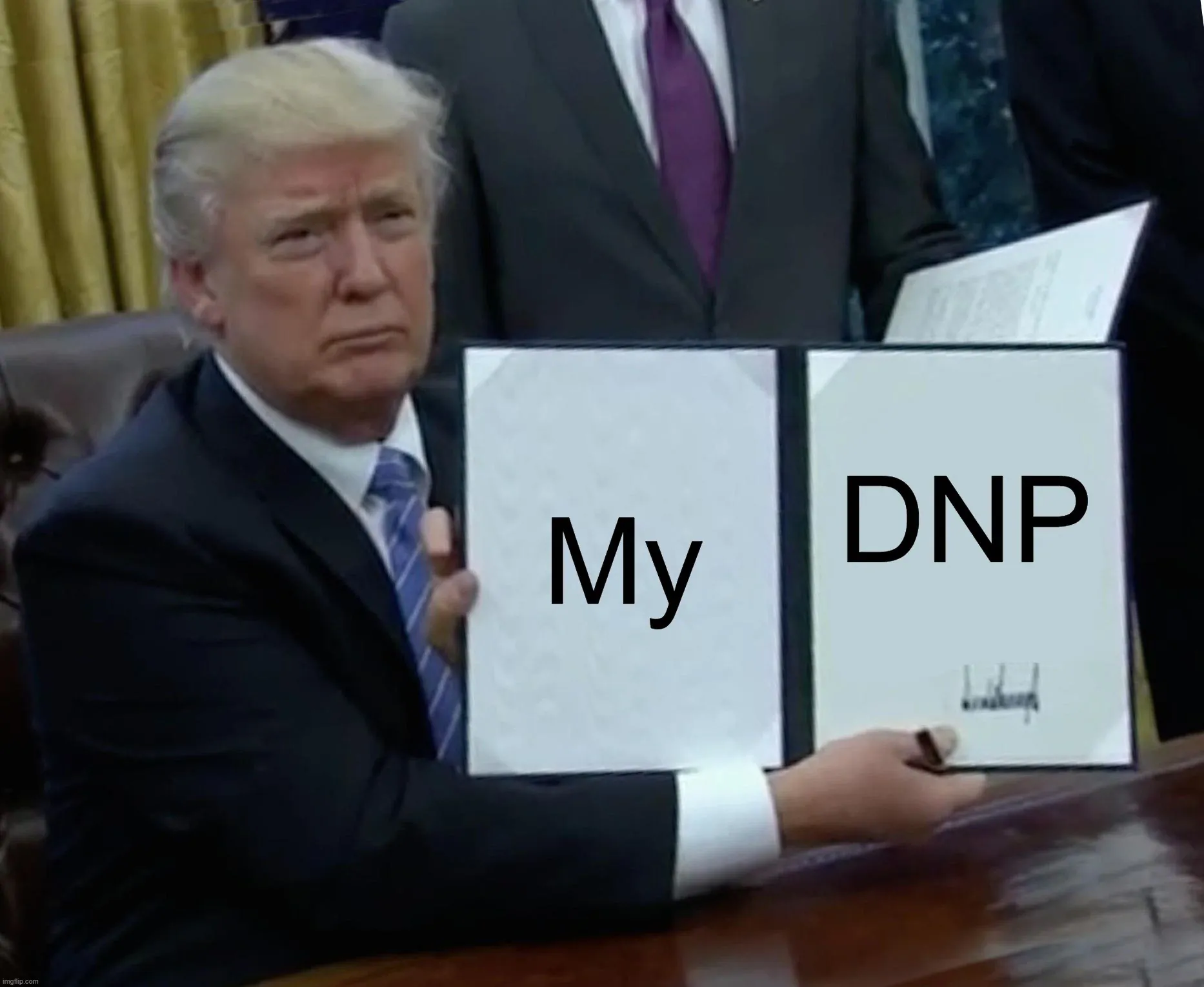
We previously profiled Maryville University and its 745-clinical-hour curriculum back in 2021, when we featured one of their esteemed graduates and her utter incompetence when it came to managing a diabetic patient and insulin.

Needless to say, 745 clinical hours of doing who-knows-what is a far, far cry from the 15,000-plus hours of rigorous clinical training and examination that a newly-minted family medicine physician has under his/her belt.
Moral of the story: With the rampant rise of midlevels and nurse practitioners running amok pretending to be "doctors", patients need to be more vigilant and discerning than ever before about exactly who they're seeing when they seek care at a medical facility. Indeed, as the above example shows, your "doctor" may actually be a nurse who does not have the legal authority or educational background to practice family medicine. In the primary care setting, one must take care to ensure that the clinician has an actual medical degree (MD or DO) and completed an ACGME-accredited residency in one of the following medical specialties traditionally associated with primary care:
- Family Medicine
- Internal Medicine
- Pediatrics
- Internal Medicine-Pediatrics (Med-Peds)
- Obstetrics and Gynecology (OB/GYN)
The websites and offices of most reputable physician-run practices will prominently display their physicians' names, credentials, and training backgrounds. On the other hand, common "red flag" tactics used by midlevel-run practices include:
- Only listing "providers" without providing specific names or credentials
- Clinics/offices with vague or dubious terms in their business name that do not align with recognized medical specialties such as "health", "wellness", "mental health", etc.
- Referring to a staff member as a "doctor" but refusing/unwilling to clarify what kind of doctor or if said doctor is actually a physician
- Employing non-physician midlevel providers and claiming that they are "just as good" or "better" than a physician
If you encounter any of these red-flag signs, run away - as fast as you can!
If you agree with what we've presented, you can file a report with the Rhode Island Department of Health and/or Attorney General using the links below:


